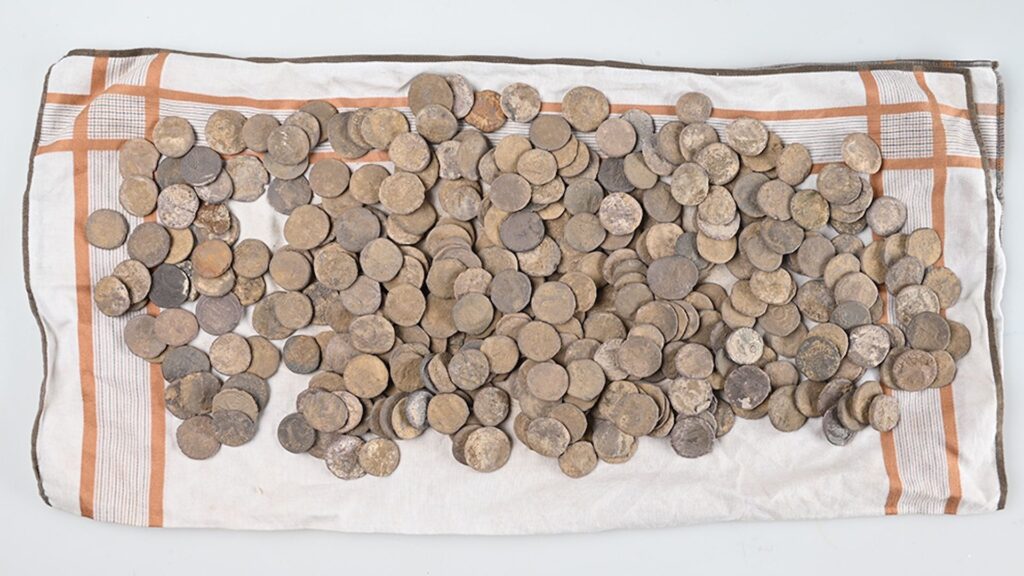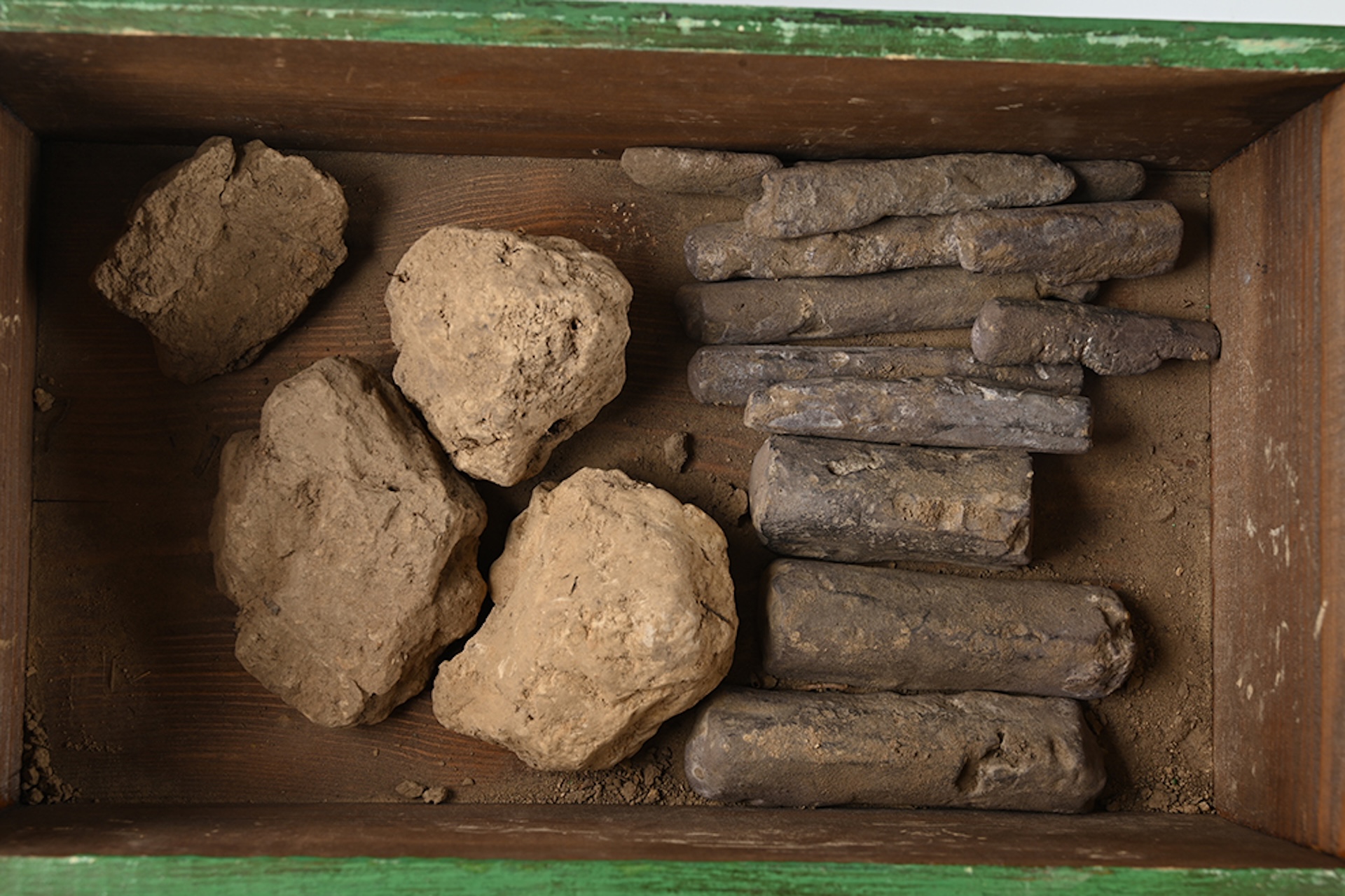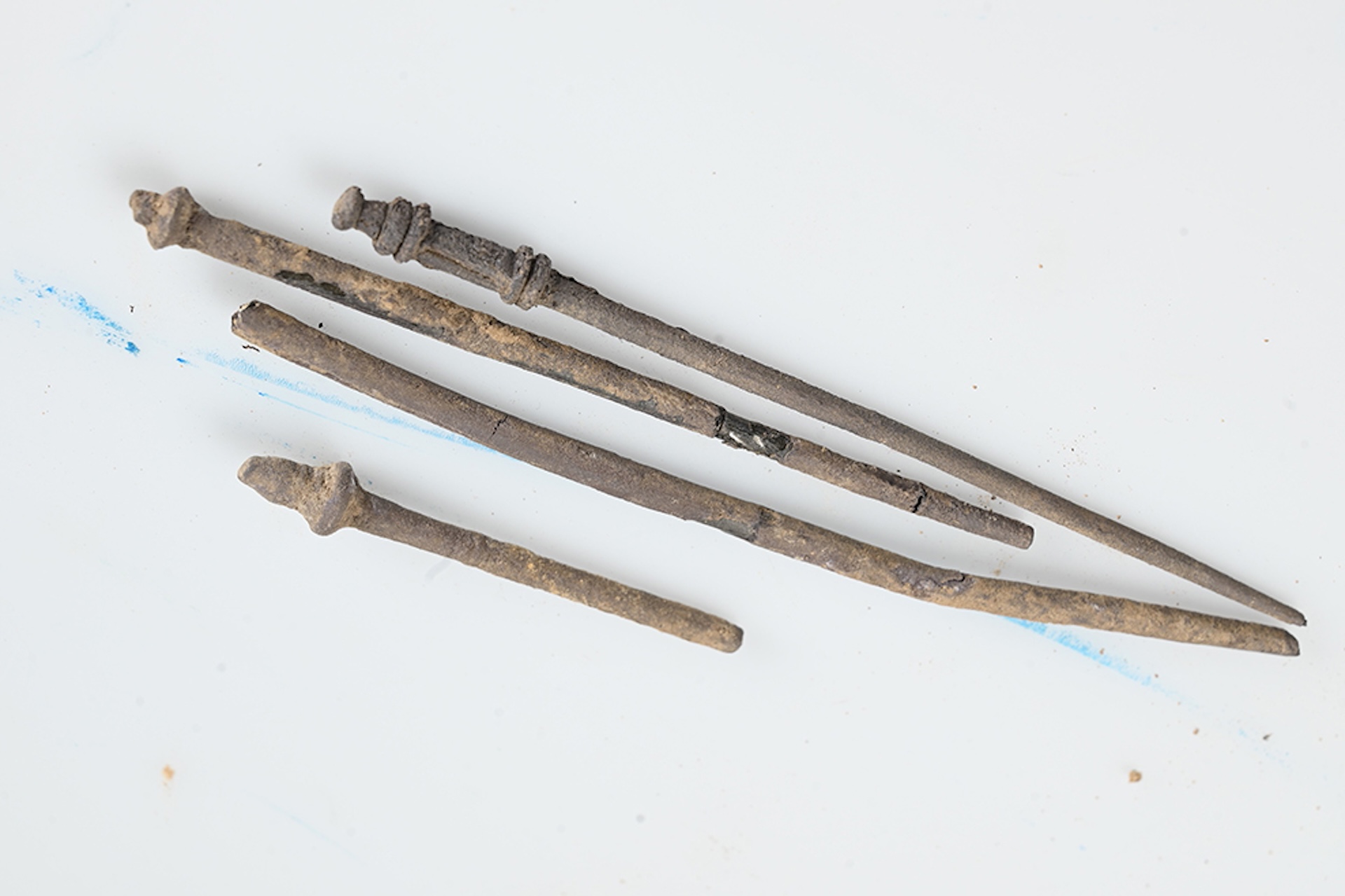A German man discovered a Roman treasure containing hundreds of silver coins, a gold ring, a gold coin and several silver bars, but he didn’t do it legally.
A man first discovered the 2,000-year-old treasure in 2017 using a metal detector near the village of Borsum in the Hildesheim district of Lower Saxony in northwestern Germany. However, he did not report the discovery at the time because he did not have permission to excavate the artifacts. Instead, he waited until April of this year to report it to police and the city of Hildesheim’s monument protection authority, according to a translated statement.
you may like
In early October, government officials conducted a more comprehensive archaeological survey of the area and discovered several more coins, bringing the total silver coins to 450, making this one of the largest hoards of Roman coins ever discovered in Lower Saxony, the statement reported.
“This discovery is of great scientific importance,” Sebastian Messal, an archaeologist and head of the regional department overseeing the case at the Lower Saxony state monument preservation office, told Deutsche Presse AG (dpa) in German.
This coin dates back to the early Roman Empire period, after the fall of the Roman Republic and emperors began to rule the empire. According to the statement, the imperial period saw not only coexistence but also conflict between Roman and Germanic tribes across frontiers. Further analysis will allow researchers to establish a more definitive date for when the artifacts were likely buried.
“Only then can we assess where the remains came from and why they were buried here,” the statement said. “Were they Romans or Germanic tribes?”
The man who discovered the treasure, now 31 years old, has been attending a government-run metal detector course since turning it in. The Hildesheim public prosecutor’s office also stopped investigating his case because the statute of limitations had expired. In Lower Saxony, metal detectors searching for artifacts require a permit in order to properly discover and report finds in a way that does not disturb archaeological deposits or sites.
Roman Emperor Quiz: Test your knowledge about the rulers of ancient empires
Source link



